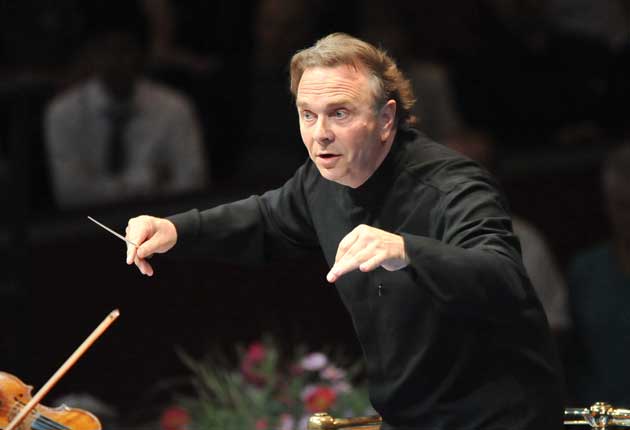Prom 19: Halle Orchestra/ Elder, Royal Albert Hall, London

Benvenuto Cellini swept into the Proms a good deal lighter on his feet than is customary. Sir Mark Elder was plainly on a mission to keep the flamboyant Frenchman on his toes. He's been gaining weight over the years, his elegance too often sacrificed to his bombast. And so the Halle's brass and timpani were kept in check with rhythmic buoyancy from the strings and woodwinds introducing plenty of air into the texture.
But wasn't the swashbuckling hero of this wonderful overture a mite too retiring come the defiant climax? Why would Berlioz have written for three timpanists at the gallop (the four horsemen of the apocalypse minus one) if they were barely audible? It's all a question of relative dynamics, of course, and Elder was plainly saving his fire-power for the roar of the final chord.
That was quite an exit for the hero; but now it was the turn of the heroine with Susan Graham looking every inch a pre-Raphaelite Cleopatra. Berlioz' daring Prix de Rome entry, La Mort de Cléopâtre, is a minefield of intricate wordplay and the front of the arena (or BBC Radio 3) is probably the best – the only – place in the Albert Hall to experience it. This is quite a party piece for Graham and she deployed her physical presence and the sheer height of her mezzo voice to imperious effect. But the frisson of the more intimate detail, the dissonant darkening of harmony into the "eternal night" of the central meditation failed to grip me as it can and it wasn't until the appearance of the "vile reptile" that Berlioz' graphic dramaturgy really took hold. Cleopatra's faltering pulse, the death rattle in tremolando strings, the inelegant expiration in double-basses – it was all there, but it lacked immediacy.
There were no such problems with Mendelssohn's symphony-cantata Lobgesang (Symphony No 2), an apt celebration if ever there was one for the bicentennial of the composer's birth. This is one of those works whose wholehearted good nature is truly of universal appeal. The opening sinfonia would be satisfying in itself – not least the sunny central intermezzo that again highlighted the delicacy of what Elder can now achieve with this orchestra – but Mendelssohn's need to add words and voices to his paean of praise makes the piece that much more of a communal experience. You don't leave shaken or stirred – just content.
Subscribe to Independent Premium to bookmark this article
Want to bookmark your favourite articles and stories to read or reference later? Start your Independent Premium subscription today.

Join our commenting forum
Join thought-provoking conversations, follow other Independent readers and see their replies